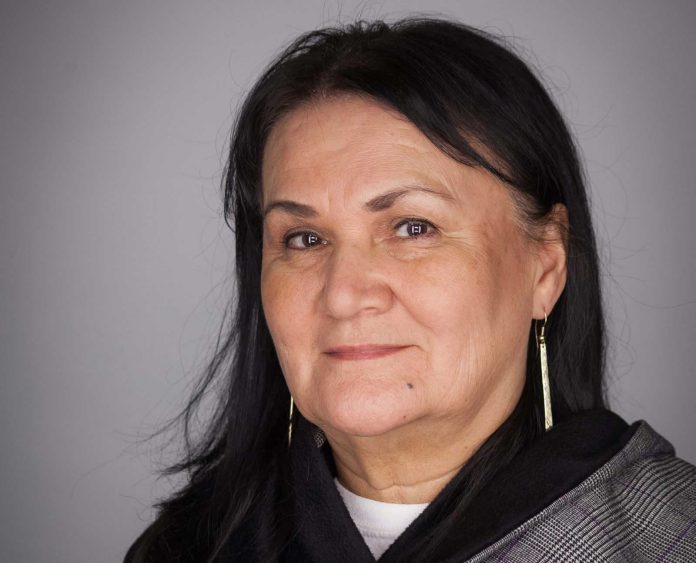Anne Kettling had been happily living off the grid for over 15 years with her husband Fritz who sadly and very unexpectedly passed away a few months ago. The writer and her husband Bill had met both Anne and Fritz on the deck of a beautiful yacht during an excursion to the Benjamin Islands. Anne agreed to do her story for Now and Then at that time. The announcement of Fritz’s passing about two weeks later was a complete shock for us all.
Several months later, an appointment to meet with Anne was made. When the writer arrived at Anne’s home on Barrie Island, she expected to find a small basic structure with a wood stove and minimal appliances requiring power. Instead, the writer was truly amazed at the spectacle of a large, well-laid out, beautifully-fashioned home. Large picture windows bring lots of light in and a regular kitchen with modern propane appliances also defies the off-the-grid expectations.
The living room proudly displays a unique, white, decorated wood-burning stove that smacks of traditional European vintage, the type that heats the entire house. Outside, 18 banks of solar panels feed into large batteries in the garage. A windmill generates extra power to help run back-up heaters, lights, computers and a proliferation of other electric gadgets.
Back inside, there is a comfortable niche beside the kitchen which is were we settled to do the story. Anne began her life on November 24, 1948 in Luedenscheid, Germany when she was born to Emmy and Paul Schulte. “I loved to holiday and swim in the Bodensee (Lake Constance) on the Swiss-German border. My mother bought me a swimsuit from there and I loved it. I had to be able to swim on a holiday or it was not a vacation for me.”
Anne started school at age six at Easter and was rewarded with a cone of candy and biscuits on her first day. This was a German tradition. “All I can remember from the early days of starting school was getting my photo taken. I couldn’t hold still because I had to go to the bathroom. The photographer was very annoyed with me. He didn’t realize I had good reason to keep moving and I was too shy to tell him.”
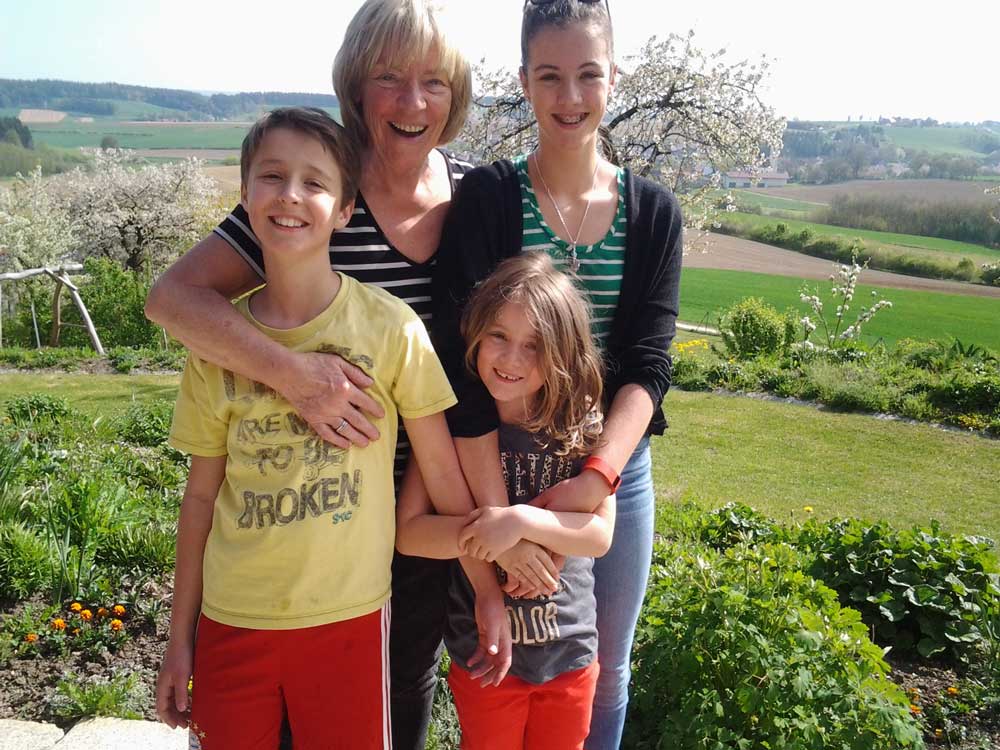
“I liked to learn, and history was my favourite subject in elementary school. Boarding school for one year came next at Agger Lake. “We could bring our own horses as part of the training. We were also taught German history, art, crafts and needlework.” The next stop, the University of Hagen in Aachen, focused on distance teaching and research with an urban campus.
While there, Anne, Protestant, worked for the Catholic University Club, managing the housing complex and Daycare for 60 kids from 7 am to 6 pm each day of the week. “I was married to my first husband at this time. We had two sons, Torsten and Helge. In 1977, after he finished his education, we went our separate ways.” Anne continued to work and care for her sons.
“I met Fritz in 1983 at a birthday party for a friend of his, who happened to be our neighbour. I liked Fritz right away. He was very charming. We had both gone through divorces and we had a lot of interests in common, like sailing, downhill skiing, ballroom dancing and the idea of living off the grid.”
Fritz’s story also began in Luedenscheid. He was born on June 5, 1938, the son of Casper and Karolina Kettling. The Kettling family owned a steel factory and they liked wire-haired Dachshunde. Fritz had one older sister, Marga, who worked as a secretary for the family steel business. Dad, Casper, born in 1890, served in both world wars, coming home wounded from the Russian front in the Second World War. This likely saved his life, as close to 200,000 soldiers died on that front during the Russian winter.
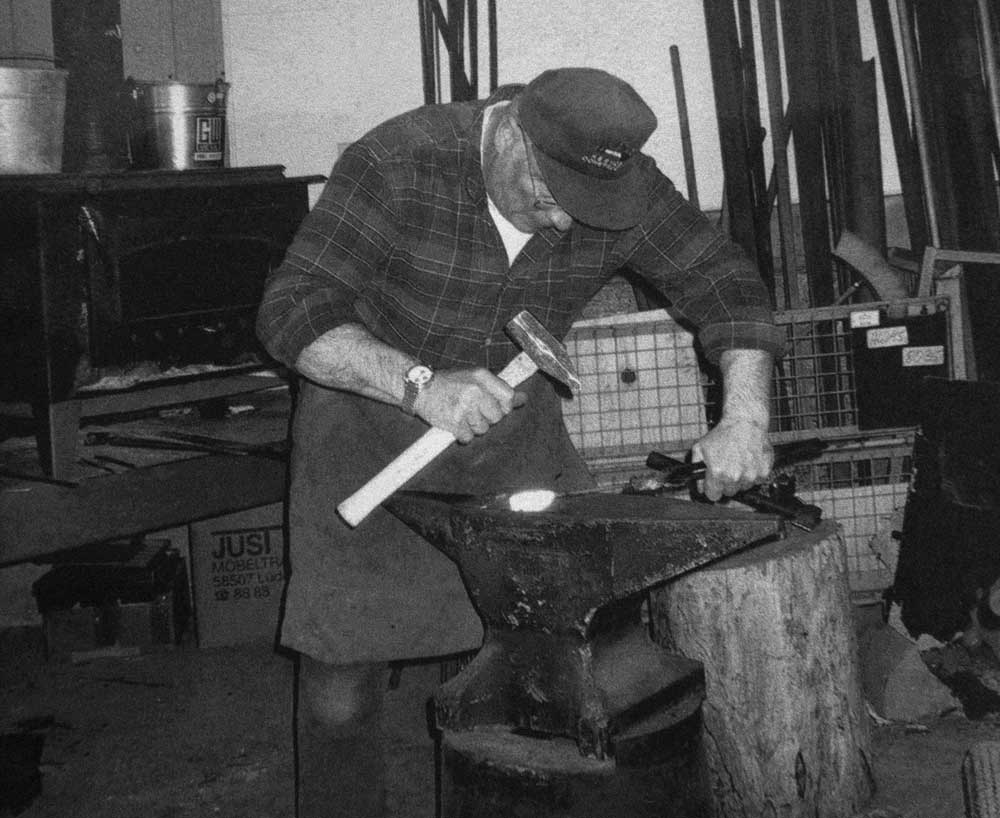
Fritz was six when he was exploring the wooded area behind his parent’s home one day and picked up a round metal object that blew up in his hands. It was a hand grenade, left over from the war. He sustained 70 shrapnel cuts on his front and spent eight weeks in intensive care in an American hospital in Germany. Luckily, there were no permanent injuries.
‘Leaderstrumpf,’ or ‘Leatherstocking,’ written by James Fenimore Cooper, intrigued Fritz from an early age. Reading about the Native culture in Canada compelled him to plan a visit to this country one day. As he got older, Fritz took engineering courses at the Bodensee College. He began to work for the Grundig Company, which built radios, helping to remodel their buildings in the city of Altena.
After Fritz and Anne moved in together in 1983, she began to work for his family in the office of the steel company. “In 1984 we took the plunge and came to Canada to buy our property on Barrie Island. We had seen it advertised in a magazine in Germany. There were 40 acres on a lake, without buildings or hydro. Canada was our hope for a new future.”

“In early 1988, a few months before our wedding, we took a skiing trip together in Switzerland. It was fun being with someone who enjoyed the same things. On Friday June 3, 1988 we married in Luedenscheid with close family attending. The next day, we celebrated our nuptials and Fritz’s 50th birthday (due a day later). Shortly after that we came to Canada for a few weeks to begin building our new home.”
“It was slow going at first. Each summer with the help of generators, we began to build our house, returning to Germany in the fall. Then in 2000, Fritz sent me a notice on a sheet of paper. It said, ‘What do you think? We could retire in Canada.’ I agreed wholeheartedly.”
“The kids were adults now. I had always been closer to my dad, but he had passed away before my first marriage ended. My mother was living with my brother, so she wouldn’t need my help,” Anne adds. “I was 52 and Fritz, 62. We were both ready to start our new adventure by making Canada our permanent home.”
“We visited the immigration office right away. It turned out to be a rather expensive investment program called ‘The New Canadian Plan’ of 2000. You had to come up with $500,000 up front, money the government could invest for five years. They kept all the interest, a substantial amount, from the high rates at the time. After five years, you would get your original investment back, but none of the interest. Over the next year, the fee was paid, medical tests and English language tests completed, and visas obtained. On December 16, 2001, the couple immigrated to Manitoulin, specifically to Barrie Island.
“For the first few years, as we were slowly establishing our new home base on Barrie Island, we came back to Germany for two to five months a year. While abroad, we worked to sell the two companies that Fritz had been running. The first was his family’s steel company, which made metal products like rod iron railings, doors for heating systems and open fireplaces. The other company had been bought by Fritz himself. It was hard to sell companies at the time, so that meant more trips to Germany.”
While on Barrie Island, Janet and Ted Maves became good friends. “Ted had gone by our partially finished home in his boat and saw the German flag flying on our post. He rushed home and told his wife they should meet the German couple building a home nearby. They contacted Anne and a date was set for dinner. “I had a problem distinguishing between Tuesday and Thursday,” Anne shares. “I believe I invited them for Thursday but when they arrived on Tuesday, I realized I had to try harder to distinguish these two days. Nevertheless, a good dinner was made, even though the date was a surprise.”
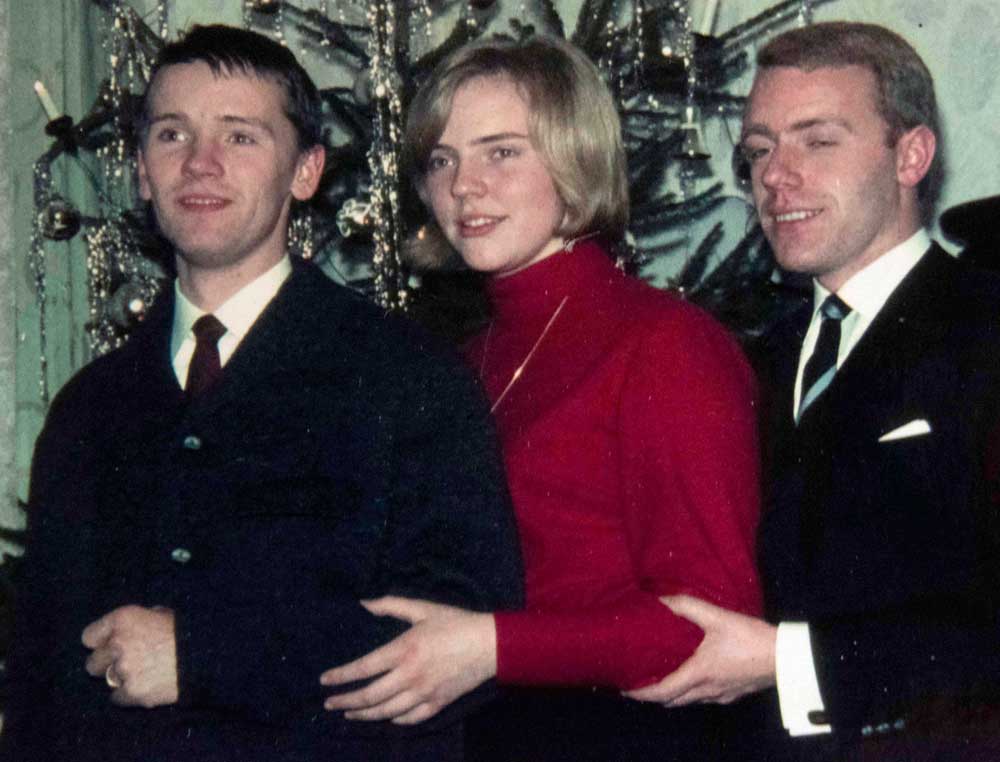
Another one of their good friends and summer neighbours, Judge Don and wife Ardis Luce and daughters Eure and Austeen, close in age to the Kettling boys, teased son Torsten upon his imminent return to Germany. The sign they put up, said, ‘Goodbye Bull Face.’ Torsten had been given the nick-name Bull Face during a humorous encounter.
The next summer, prior to the arrival of the Luce family, Fritz (with Torsten and Helge) raided the Luce cabin and removed some of their underwear and lined it up along the driveway, adding lots of toilet-paper to the trees as well. When the family arrived for their summer vacation, loud screams could be heard. It was a great payback. Today all four siblings, from both families, still stay in contact and visit each other in Ohio and in Ontario.
“After we moved to Barrie Island we tried to join as many local events as possible so we could meet new friends and be active in our new community. Ballroom dancing was available, so we quickly joined that group. We adored The Manitoulin Jazz Band and met Oliver Runnalls on saxophone, Doug Smith on clarinet and saxophone, Nickie Hinds on piano and Jim Smith on clarinet and saxophone. Jim’s wife Joanne also played piano. Later Wayne Bryant, a drummer, was added.” Many members of this group also participated in the ballroom dancing.
The couple soon fit right into their new social milieu. “Fritz was always happy, laughing, and he was charming with our new friends. He also worked hard on our projects and when he helped others with their tasks. Er arbeitet hart, wie ein Pferd (he worked hard like a horse).
“We joined active boards as well, one being the Cemetery Board and the other, the Culture and Recreation Committee.” They helped take care of the local parks, held successful spaghetti suppers and wiener roasts to help raise money for historic signs and other activities. The ‘Welcome to Barrie Island’ sign, prominently displayed near the entrance to the island, is a beautiful sign that both Anne and Fritz helped with and Fritz also painted.
Over the years, the Kettlings accumulated almost 300 acres, most of which was wooded and suitable for hunting. After 1995, Fritz hunted annually for deer, the meat from which they could enjoy over the winter. Both Anne and Fritz were ardent sailors and they loved being outdoors, on the boat, working at home or helping a neighbor.
Fritz also spent a lot of time in his machine shop fashioning metal creations. Candle holders featured rock bases he found on the property. Many wound up at local churches, including Gore Bay, Silverwater and Elizabeth Bay. He also made a metal Advent Kranz, a Christmas wreath that would support four large candles. One candle is lit each of the Sundays in December. By Christmas Day, all four candles are burning.
Both Fritz and Anne became proud Canadian citizens in 2006 and 2009, respectively. Fritz’s certificate was given along with 83 other participants at the Howard Johnson Hotel in Sudbury. In 2012, The Queen Elizabeth Diamond Jubilee Medal was awarded to Fritz for ‘dedicated service to your peers, your community and to Canada.’
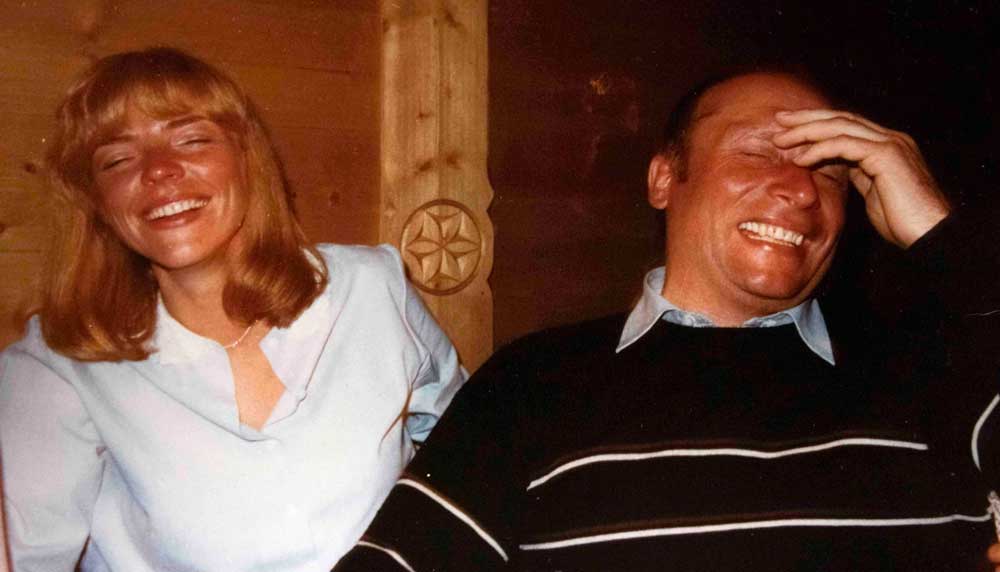
Fritz has always had a great relationship with the two boys. They became his own sons. “He taught them sailing, downhill skiing and many other skills. He was so happy with them, it was like watching three kids having fun,” Anne shares. “I was very glad I had two boys. Playing sports with them was so much fun. It might have been different with two girls.”
Today Torsten is an engineer for BMW and he works in München, Germany. Helge is also an engineer and works in Luedenscheid at Kostal Group, a company that makes automotive electrical systems and solar electric machinery, as well as other industrial electronics. It is a company with 17,000 employees. “We have four grandchildren. Torsten has 17-year-old, Lina, 13-year-old Henry and Fine, nine. Helga has one son, Felix, nine. Anne’s brother Dieter was a talented pastry chef. He has passed away. Her brother Horst is a professor in Stuttgard.
“One summer, Fritz set up a fake treasure hunt for Lina and Henry. He built a special treasure box, added some old coins, jewellery and silverware and buried it. He made up a map on deer-hide and the youngsters had to learn how to use a compass, and sail a small boat, an Olympia Opti class, in order to find the treasure on Henry Island. The kids loved it, but I think Fritz had more fun than anybody.”
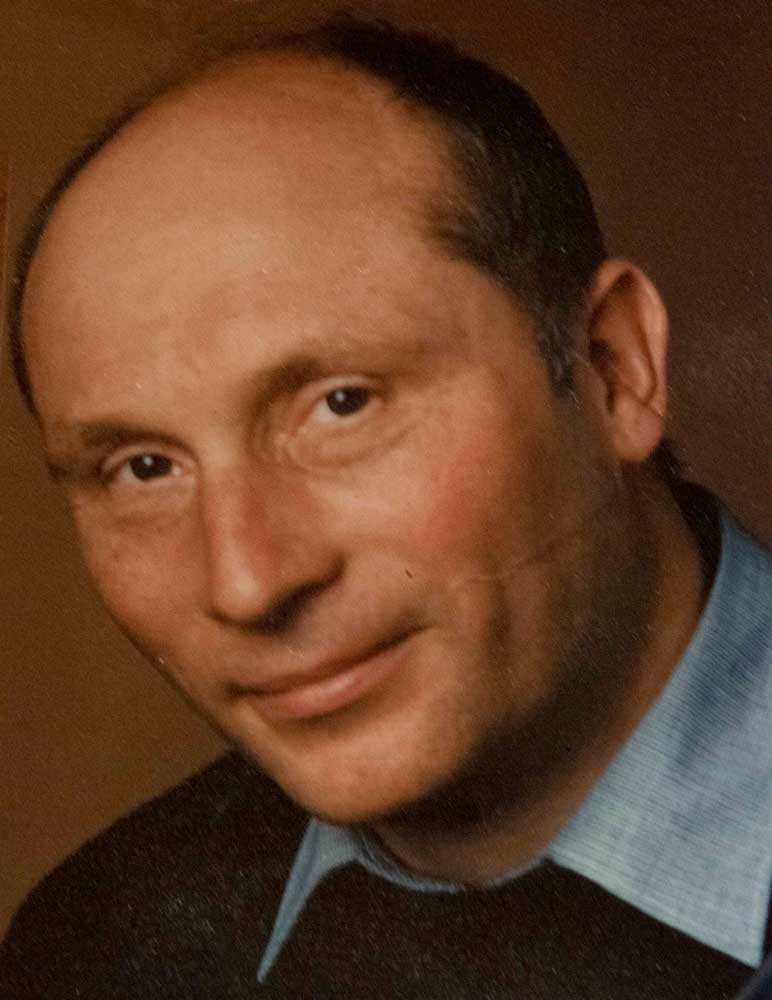
“In 2013 we flew to Calgary on our 25th wedding anniversary. It was a memorable trip, even though Fritz would have been happy just to stay home on Barrie Island. We toured by bus for four days in the mountain areas of Alberta and British Columbia. We rode the Rocky Mountaineer and saw more of Canada’s beauty. Then we were off to Vancouver where we took the cruise to Alaska.”
For Fritz’s 80th birthday, the couple hosted a party of 80 people at G.G’s Restaurant in Evansville. It turned out to be his last big event and it was a wonderful celebration, a great send-off for a man who did so much for his neighbours and who loved life as much as he did.
Fritz died with a heart attack, at home on July 23, this year. He had just helped a neighbour with a little project and had come home. He had suffered a heart attack 20 years earlier and was taking at least six pills a day initially. He slowly worked that down to two pills a day with medical guidance and he recently had had a good bill of health. The doctor told him he had good blood pressure and he would be around another decade or so. Sadly, that was not to be.
Fritz died on a Monday and both boys were here from Germany on Tuesday. The funeral was held on August seventh in Gore Bay. At first, Anne was lost without her partner of 35 years. She was living in a new country, on a sparsely populated island in Lake Huron, off the grid, but it was in the house she and Fritz had built with love and lots of planning.
A favourite pastime of collecting poems, ‘Poesie,’ written by family and friends, persists. These are carefully and artistically stored in a scrapbook. “I love being active: really enjoy the swim club, horseback riding and tennis. I look forward to meeting other like-minded friends.” In Germany it had been tennis, sailing with Fritz as the captain, the Brewer’s Club and skiing in Austria and Switzerland. “Two years ago, both Fritz and I attended a school reunion in Germany. It seems to me many were spending more time complaining about health issues than getting caught up about the good things in life. I wanted to say to them, ‘Look at the bright side and get on with your life’.”
Anne was a little uncertain about negotiating the future alone, but with each day she gets more confident and comfortable with her decision to stay in their home. All the love and support from her friends, especially her book club ladies, helped her get through the early weeks and continues to help her now. Her German friends have sent 24 Advent surprise packets, to be opened each day until Christmas Eve.
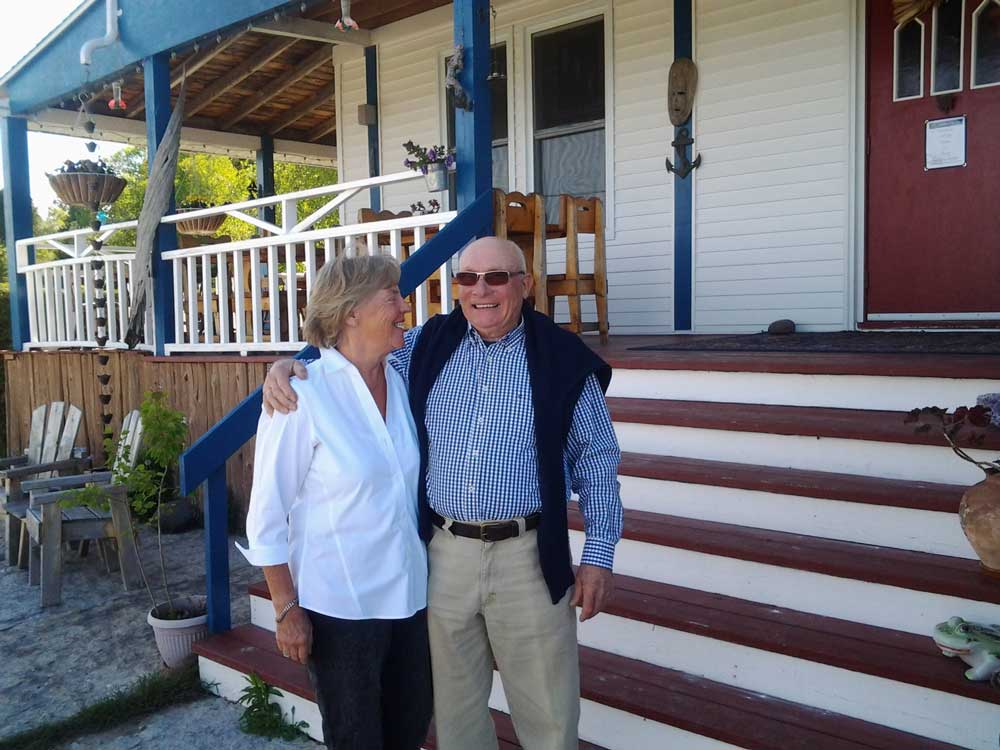
“My strengths? I like working with natural items, wood, leather, silk, no synthetics. I love to cook and bake and be a host.,” Anne adds, “I am happy here. I am still part of a book club with 10 other ladies and we meet nine times a year at each others’ homes to discuss each book. These ladies have been a big help too. I plan to stay in my home indefinitely and get used to my new way of life.”
“When it comes to technology, I am depending on my grandchildren to teach me new ideas, so I can keep up. Occasionally I get a message, ‘Oma what’s up?” and I want to be able to respond in kind. If I could go back in time, there is nothing I would change. I lived my good life in Germany and here too, with Fritz in Canada.”
“What seasons do I like the best? I like all the seasons except early spring, when the roads seem to deteriorate. This place is special. We both enjoyed carving a home right out of the woods, staying off the grid, but still, living comfortably. Fritz loved being on the water and I loved being in the water. I still have Wasti, our Dachshund. Wasti is the Bavarian name for this breed. He’s 14 now.”
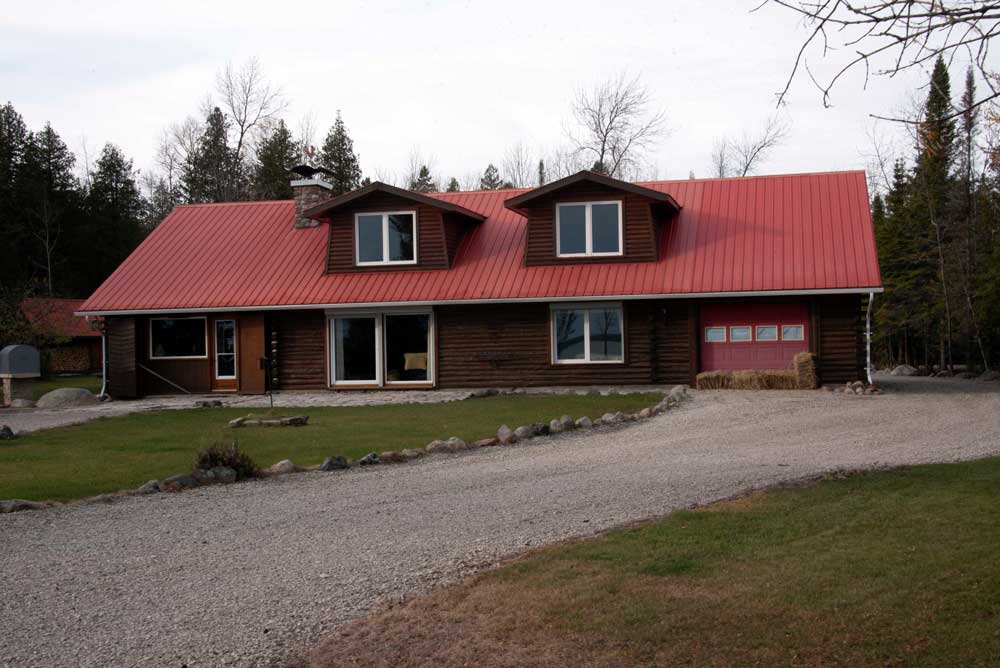
“Manitoulin is my safe and very welcoming home, more so than Germany is now, with all its changes since we left in 2001. Both sons still live in Germany. They visit me here too, and very quickly if I need them. Grandson Felix has 29 classmates and only three are German. I don’t really have a recipe for happiness, but I have learned that respect is very important, listening to others and being open to new ideas. Each relationship is different.”
“Fritz never wanted to leave Barrie Island so his ashes rest here, near the water, under a large rock, picked by the boys. I still bask in the warmth of the good camaraderie we had. It was the best time of my life. He inspired me to try new things and helped me gain the confidence I needed to stay here and adapt, when I wasn’t so sure. He always said, ‘If you can adjust and stay here, you can do anything. Ich kan, ich will (I can, I will) was our motto. I will continue to live and work here. One day our youngest son will take over and that gives me even more strength to stay on my beloved Barrie Island.”


